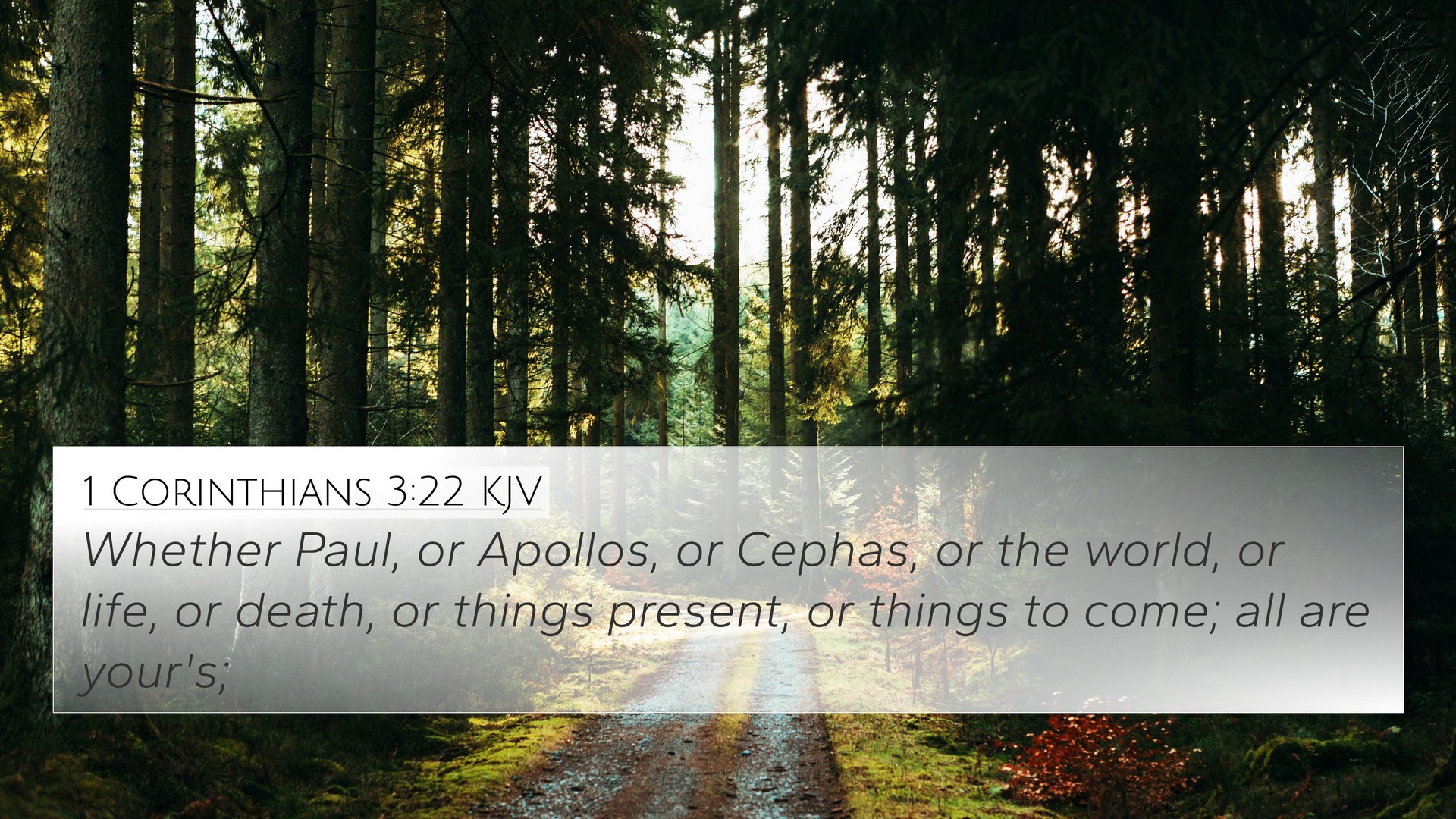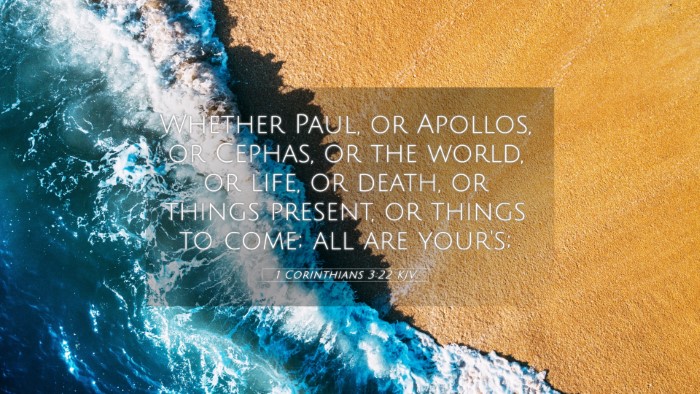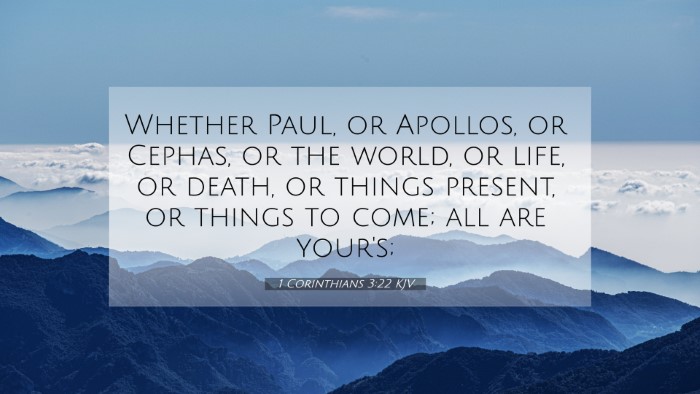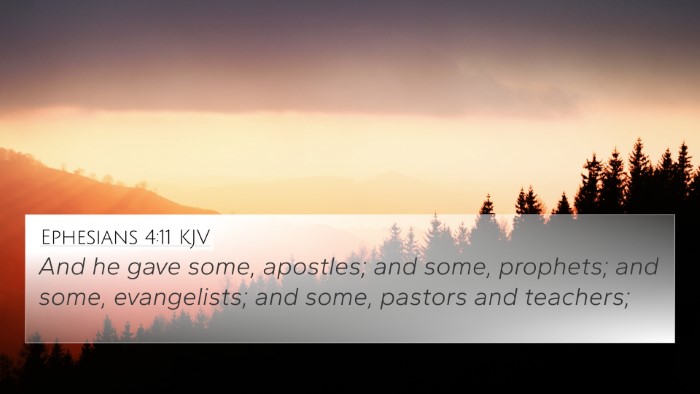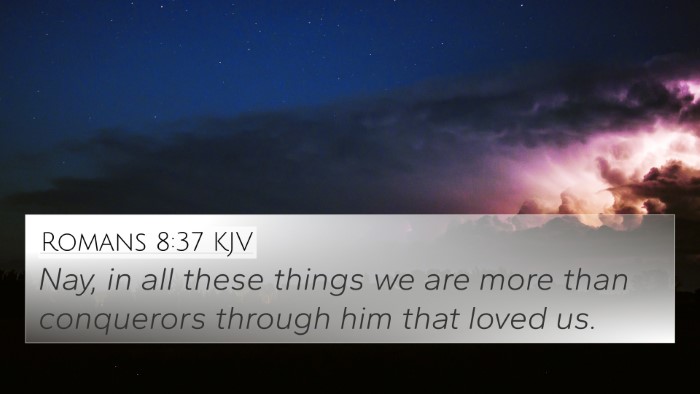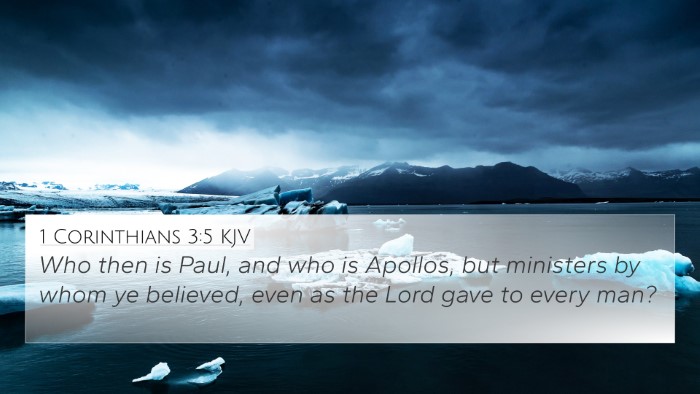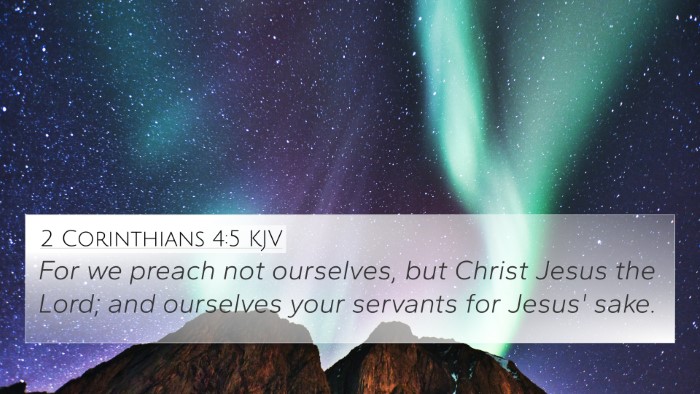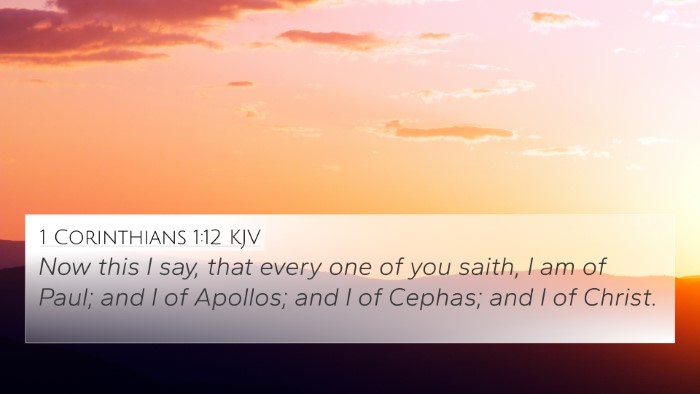Understanding 1 Corinthians 3:22
The verse 1 Corinthians 3:22 states, "Whether Paul, or Apollos, or Cephas, or the world, or life, or death, or things present, or things to come; all are yours;" This passage highlights the unity and shared inheritance of believers in Christ. The Apostle Paul addresses divisions in the Corinthian church, reminding them of their collective belonging and the broader scope of their spiritual assets.
Context of 1 Corinthians 3:22
In the context of 1 Corinthians, Paul wrote to a church grappling with moral and spiritual issues, including factionalism based on loyalty to different leaders. His intention in this epistle is to realign their priorities and encourage them to understand the fullness of their identity in Christ, where all things work together for their benefit.
Key Insights from Public Domain Commentaries
Matthew Henry's Commentary
Matthew Henry emphasizes that the mention of various figures – "Paul, Apollos, Cephas" – serves to illustrate the roles of spiritual leaders rather than their exclusive authority. Each leader contributes to the growth and welfare of the church, benefiting all believers collectively. Henry further notes that the verse reflects the idea that all circumstances in life, whether favorable or adverse, ultimately serve the believer's good as an integral part of God’s plan.
Albert Barnes' Notes
Albert Barnes explains that Paul addresses the Corinthians' view of leaders and how their loyalties were misplaced. He conveys that these leaders are not exclusive to any person; rather, they are instruments that God uses. Barnes points out that the whole creation and even events beyond the earthly realm serve believers, which reassures them of their security and the abundant life found in Christ.
Adam Clarke's Commentary
Adam Clarke views this verse as a profound declaration of the Christian peace and privilege. He asserts that believers possess all that God has made available through these leaders and circumstances. Clarke further highlights that life, death, and the world in their entirety hold no sway over believers, as they belong to Christ, enhancing the message of hope and assurance in their spiritual journey.
Related Cross References
- Romans 8:32 - "He who did not spare His own Son, but delivered Him up for us all, how shall He not with Him also freely give us all things?"
- 1 Corinthians 1:12-13 - "Now I say this, that each of you says, 'I am of Paul,' or 'I am of Apollos,' or 'I am of Cephas,' or 'I am of Christ.'" This sets the stage for Paul's admonition regarding leaders.
- Philippians 1:21 - "For to me, to live is Christ, and to die is gain." This verse speaks to the perspective believers have on life and death.
- Colossians 1:16 - "For by Him all things were created that are in heaven and that are on earth, visible and invisible, whether thrones or dominions or principalities or powers. All things were created through Him and for Him." This reinforces the notion of possession over all things.
- Romans 14:8 - "For if we live, we live to the Lord; and if we die, we die to the Lord. Therefore, whether we live or die, we are the Lord's." This aligns with the idea of total belonging to God.
- Psalm 24:1 - "The earth is the Lord's, and all its fullness, the world and those who dwell therein." This emphasizes God's ownership over all creation.
- 2 Peter 1:3 - "As His divine power has given to us all things that pertain to life and godliness, through the knowledge of Him who called us by glory and virtue." This delivers assurance of God's provision for believers.
Thematic Connections
The richness of 1 Corinthians 3:22 emerges in its thematic connections to humility, stewardship, and the concept of unity in the body of Christ. Each believer is called to recognize their place within the community, not to create divisions but to celebrate a shared inheritance.
This verse invites believers to embrace a holistic view of their spiritual resources, recognizing that aspects of their lives—even challenging ones—serve a greater purpose and contribute to their spiritual maturity.
Conclusion
In summary, 1 Corinthians 3:22 presents profound truths about the identity and privileges of believers in Christ. It encourages us to view leaders in the church not as rivals but as partners in a common mission. The interconnectedness of scripture through cross-references deepens our understanding and encourages a more nuanced and enriched study of God's Word.
For further exploration, one might consider tools for Bible cross-referencing, utilizing a Bible concordance, or employing a cross-reference Bible study approach to identify how these themes and connections relate across the scriptures.
